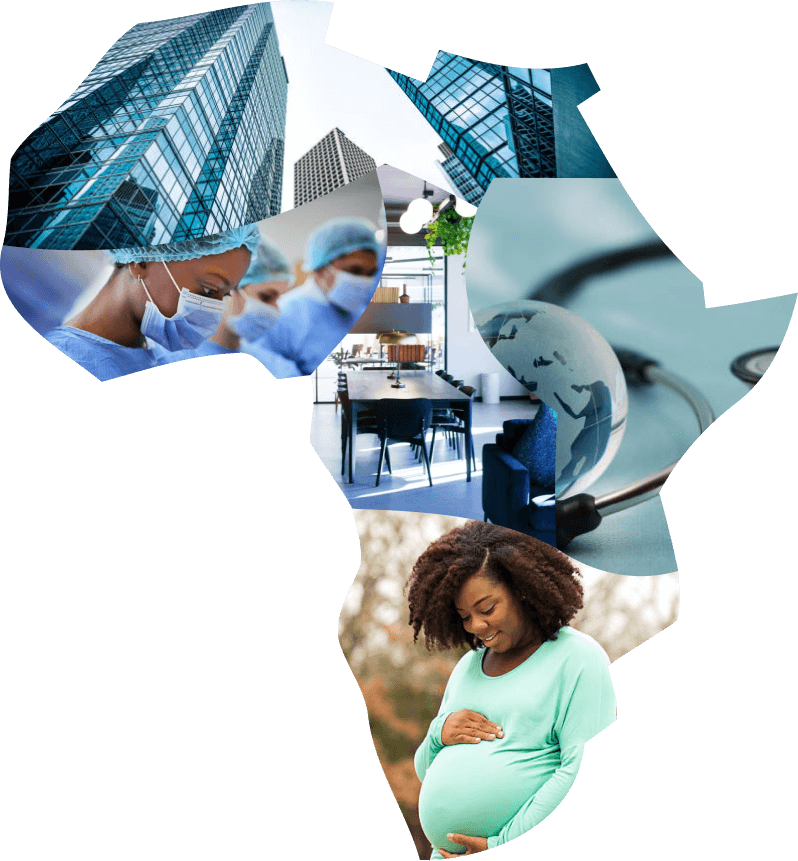While many enterprises had developed and implemented business continuity plans during this pandemic, most employers would still need to adequately prepare, manage, and respond to the nuances of COVID-19 as Africa battles with it facing the inevitable ordeal of the possibility of scaling down operations or outright closures.
Now more than ever, private sector leaders need to respond to the realities of what the pandemic has thrust upon them which summarily connotes that a healthy work force equals a healthy business – in simple words, ensuring that the health and safety of their workers and others in the workplace is prioritized. This includes providing and maintaining a work environment that is without risk to health and safety and adequate facilities for workers in carrying out their work, as is reasonably practicable.
While most national health and safety legislations cover such provisions, employers now need to go the extra mile of not only adopting these policies and procedures but also ensuring that workers adhere to them. This is critical if national economies across the continent is to be kept open with business survival expectancy.
COVID-19 is highly infectious and the workplace provide veritable breeding ground for the virus if necessary precautions are not applied. Understandably, workers are likely to be anxious about the pandemic, and they may have questions about the health risks and changes to their working arrangements or employment status. To ensure a smooth and steady flow of information throughout the workplace and prevent confusion, rumors or misinformation, employers now more than ever need to regularly communicate all relevant information to their workers, designating team or a staff member as coordinator for that purpose.
Employers should one, identify a point person or team to take the lead on communicating on COVID-19 on an agreed periodic basis; two, keep up with the latest information from national and local authorities; three, regularly provide up-to-date and reliable information to workers and; four, clarify and communicate the company’s procedures and policies, including flexible work arrangements, remote working, expectations, absence, sick leave, annual leave, redundancy, etc.
Employers have an overall responsibility to ensure a safe and healthy work -environment, as far as being reasonably practicable, including specific measures to control the spread of viruses like COVID-19. Safety and health measures are specific to each enterprise and should be developed in response to a risk assessment. Some sectors, such as Health-care and sectors where workers are in seemingly unavoidable close contact with the public, require stricter control and prevention measures than other sectors. Critically, employers should proactively identify these risks and take necessary control and mitigating measures as a responsive approach will once again be too late and costly.
Every workplace can play an important role in containing the outbreak by taking measures such as:
- Organizing work in such a way that person-to-person contact is reduced to the barest minimum, ensuring physical distance at the workplace and implementing remote work arrangements
- Disinfecting all contact areas, surfaces and objects in the workplace regularly
- Maintaining good environmental awareness and indoor ventilation
- Providing adequate facilities (e.g., soap, hand sanitizer, signage, and reminders) and encouraging workers to practice workplace hygiene (e.g. frequent hand hygiene, avoid touching eyes/nose/mouth)
- Promoting respiratory hygiene (e.g. providing face-masks to workers especially those at risk to minimize the risk of an infection)
- Reviewing Travel policies to either limit or ban non-essential work travel
- Reducing interaction with people outside the workplace as much as possible
- Empowering workers to take action and speak-up if they feel they are facing an unprotected work situation with imminent and serious risk to their health;
- Developing and implement infection control policies and procedures;
- Directing workers to comply with quarantine measures, particularly following travel to the high-risk area or contact with someone who has tested positive;
- Directing workers to stay at home or work from home if they have flu-like symptoms (e.g. fever, cough, etc.) regardless of travel or contact history;
- Complying with reporting obligations to health authorities and labour inspectorates according to national legislation and practice.
While employers can lead in the management and control of the risk that COVID-19 poses to workers and other people connected to the workplace by taking proactive actions including reviewing internal policies to support prescribed safety measures, employees also have critical roles to play in ensuring the safety of themselves, their colleagues and families.
This time, workers must cooperate fully with employers in the implementation of preventive and control measures. This includes adopting safe work behaviors, using safety devices and protective equipment correctly, and ensuring good hygiene practices, such as frequent hand washing, to protect against infections. Workers are also obliged to notify the employer if they become aware that they are suffering from any disease or physical or mental impairment, which affects the performance of their work activities or that could risk the safety, health, and welfare of other people at work. Workers have a duty to protect themselves and others, which is especially critical in the current situation.
The extra precautionary measure of limiting visitors to the workplace is important in reducing exposure to COVID-19 in the workplace. While it may not be necessary to ban visitors from coming to the workplace entirely, employers have the right to ask visitors to provide information in advance as to whether they have flu-like symptoms, have been in contact with anyone infected with COVID-19, or travelled to a high-risk area. If a visitor answers affirmatively to any of these questions, employers should request the visitor not to come to the workplace until they have been isolated for 14 days or can provide a clearance letter from a doctor. Employers may also ask the visitors to provide contact information in the event COVID-19 later develops in the workplace, and the visitors may have been exposed to it.
The need to apply caution at all levels is the new reality. COVID-19 has changed the way human beings will interact in the near future so much that today, bottom-line also depends of this responsiveness. The earlier employers proactively review and align their organizational plan, to embrace this new reality, the less costly a crisis management or possible fall-out would be.
The International Labour Organisation’s guide on managing the workplace during COVID-19 should be used as an essential guide in navigating workplace safety during this period. With everyone mindful of the risks and cooperating fully, perhaps the tragedies COVID-19 is forcing on Africa may become pivotal in reshaping how we live and work for the best.




